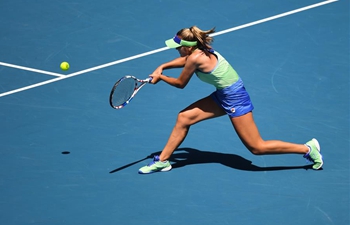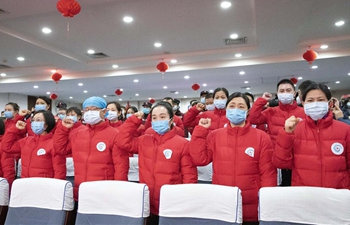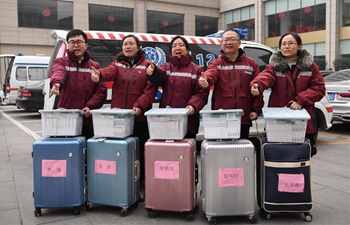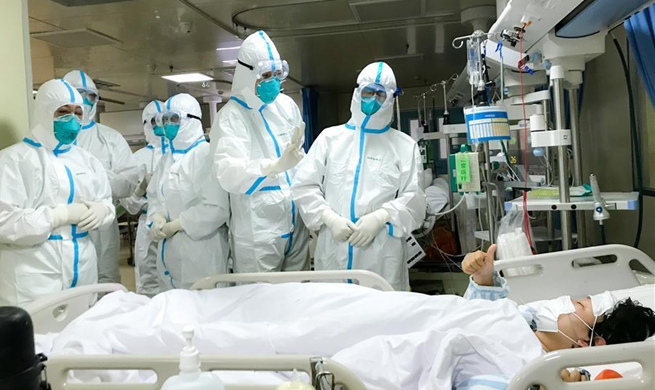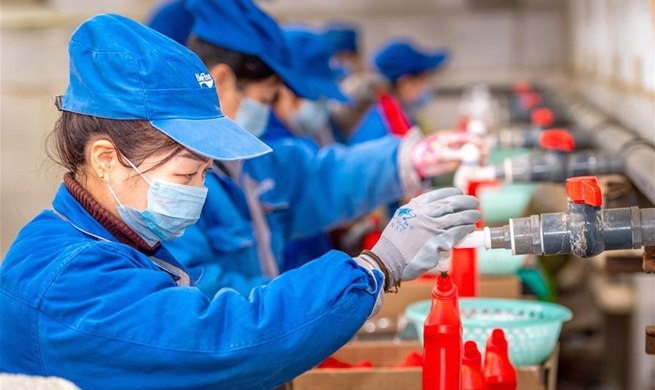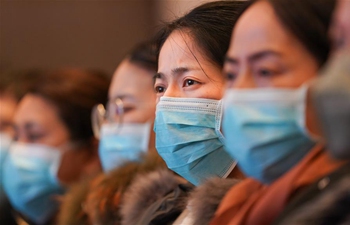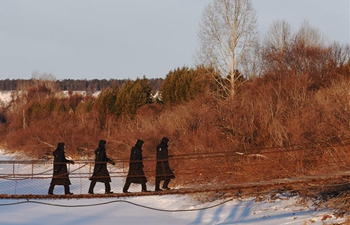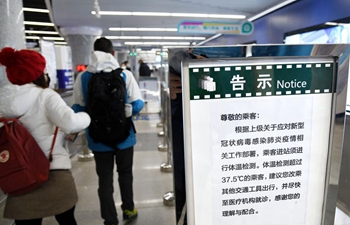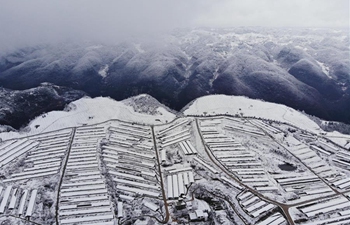JUBA, Jan. 28 (Xinhua) -- Three years ago, Monica Alak, 28, used to spend sleepless nights with hunger and constant cries from her children, which eventually forced her to till the land, with the hope of growing enough food to feed her children.
"What made us take an active role in agriculture is hunger. After seeing the suffering of our children, we decided to join hands so that we provide food for children," Alak told Xinhua in Juba.
In South Sudan, the world's youngest nation, over six million people are facing starvation and another 1.3 million children are grappling with malnutrition, according to the UN.
The food crisis is brought by several factors including conflict, droughts and floods that have interrupted farming across South Sudan.
But a group of women farmers in Yirol of South Sudan's Eastern Lakes State are on the frontline of tackling the hunger crisis. Alak is one of them.
Alak joined a farmers group in Pankar village three years ago and is proud that she is now able to provide food for her seven children.
The group supported by the World Food Programme (WFP) grow several food crops such as peanuts, Sorghum and vegetables on a 60 by 70 meters piece of land allocated to each group member.
Out of 230 group members, 200 of the farmers are women, who in the past three years have been engaging in serious agricultural activities with the aim of tackling food insecurity in their area.
"It was hunger that forced us to join the group and we are realizing some benefits now," said Debora Apiu, the group leader.
"Last year, I harvested 15 bags of peanuts from the one feddan (piece of land measuring 60 by 70 meters). I'm going to sell some to get money for family upkeep and also pay for school fees. I will reserve some for family consumption," Apiu told Xinhua.
Samuel Madol, a community leader described the women-led farmers' group as an inspiration to the local community.
"This farming group has attracted so many people to take up agriculture especially women," Madol said.
"We used to suffer food shortage but now it has improved our living standards since we can now afford food. Our lives have changed. We farm our food and also have some for sale," he added.
Madol said he would encourage more people to join agriculture and help tackle the hunger crisis in his village.
"It is true that some men do not really support their women with farm work in the past but we are now seeing change," said Madol.
According to the Integrated Food Security Phase Classification (IPC) report produced by the UN and the government in early 2019, some families in South Sudan's Eastern Lakes were facing famine-like situations.
Despite humanitarian intervention by aid agencies, 52 percent of the region's population is projected to face acute food insecurity at the start of 2020, according to the IPC analysis of August 2019.
Last year, the Yirol area suffered serious inter-communal violence, cattle raids, floods and severe drought caused by climate variation.
Instead of giving food assistance in the form of handouts, humanitarian organizations are adapting new mechanisms to help people in need.
One such way is the Food for Assets (FFA), an initiative of the WFP where communities are provided food aid and skills in the areas of agriculture, construction of community roads and water points.
Jam Mayom, acting project FFA officer in Panker said women have the ability to end the food crisis facing South Sudan though most of them do not have the capacity to engage in large scale agriculture due to existing societal obstacles.
"Women in most communities of South Sudan are vulnerable, yet they are the once executing domestic responsibilities, that is why we are targeting them with this project," Mayom said.
But all is not rosy for the farmers. Their main challenges include climate change and the destructive crop-eating fall armyworms, which has caused havoc in farmlands across South Sudan.
Alak said her harvest of sorghum reduced from 15 bags in 2018 to just five last year, mainly because of the sudden change in weather patterns.
"We normally plant in April at the start of the rain season, but last year was different because rains started in June. The rain came late when the crops were already destroyed," said Alak.
"The fall armyworm also destroyed our crops that is why I only harvested five sacks of sorghum and groundnuts (peanuts) last year," she added.
Despite the challenges, the women farmers have vowed to move beyond subsistence agriculture and venture into commercial farming in the future.


